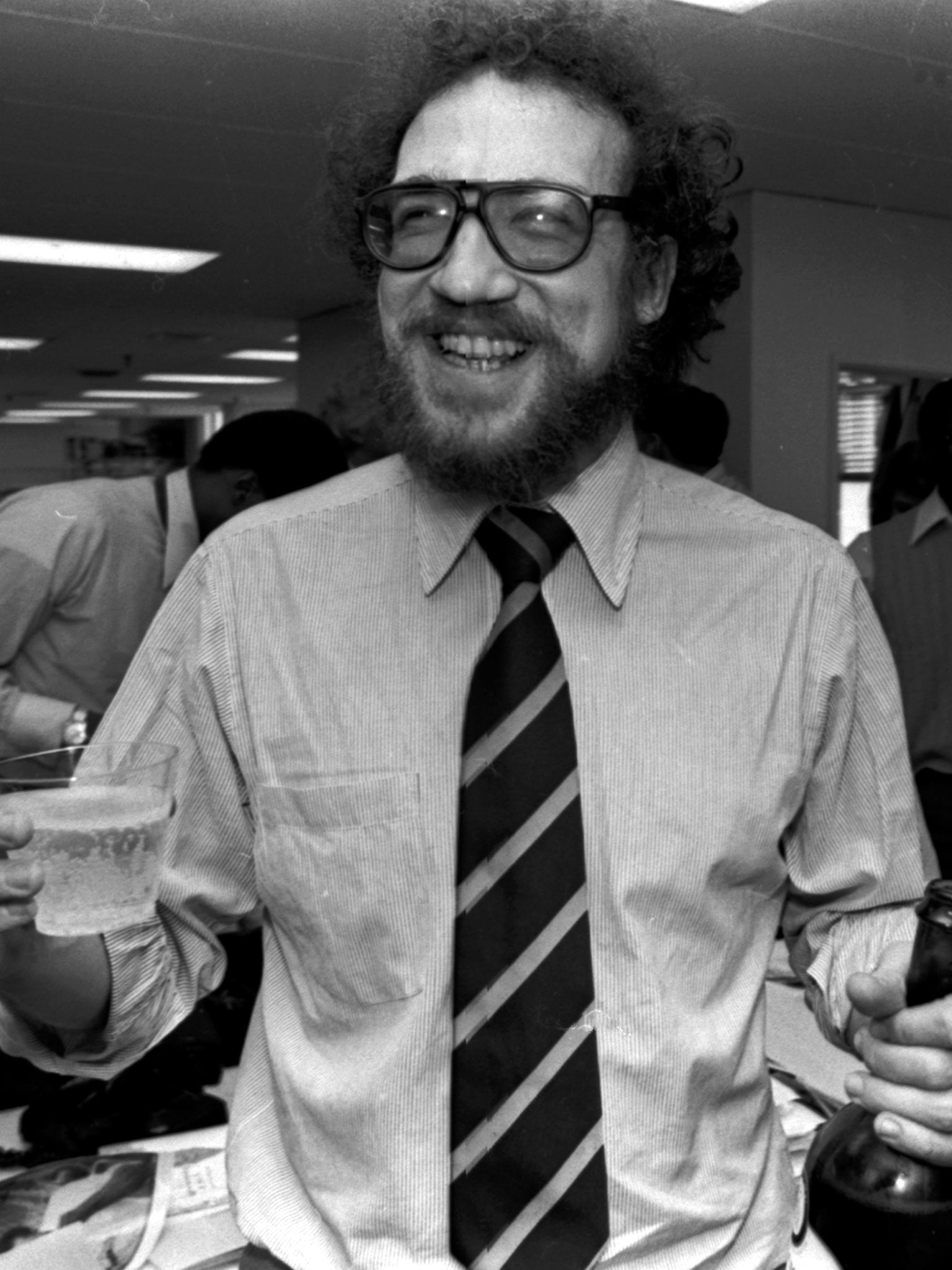Richard Ben Cramer obituary: Journalist noted for his empathy with his subjects

Your support helps us to tell the story
From reproductive rights to climate change to Big Tech, The Independent is on the ground when the story is developing. Whether it's investigating the financials of Elon Musk's pro-Trump PAC or producing our latest documentary, 'The A Word', which shines a light on the American women fighting for reproductive rights, we know how important it is to parse out the facts from the messaging.
At such a critical moment in US history, we need reporters on the ground. Your donation allows us to keep sending journalists to speak to both sides of the story.
The Independent is trusted by Americans across the entire political spectrum. And unlike many other quality news outlets, we choose not to lock Americans out of our reporting and analysis with paywalls. We believe quality journalism should be available to everyone, paid for by those who can afford it.
Your support makes all the difference.The New Journalism opened the floodgates for writers of non-fiction to use the materials of fiction. When Richard Ben Cramer produced his landmark study of the 1988 US presidential campaign, What It Takes, it was criticised widely for its perceived lack of seriousness. Reviewers seemed to expect Cramer's 1,000 page study of the six contenders, George Bush, Bob Dole, Michael Dukakis, Gary Hart, and Joe Biden, to creak under its accumulated gravitas. Instead they got Tom Wolfe typography and bursts of wild metaphor they'd expect from Hunter S Thompson, blinding them to the fact that, with his energy and empathy, Cramer was able to explore deeply these lives, and uncover the dilemma faced by all of them: the price they needed to pay to achieve their ultimate goal. Today, What It Takes is considered a classic.
Its theme was something Cramer has addressed before, in the showcase article from the famed June 1986 special "The American Man: 1946-86" issue of Esquire. Cramer's profile of the irascible and notoriously private baseball star Ted Williams was revealing and endearing. Half of Williams' quotes appeared in all capital letters, emphasising his awkward bellow. Asked how old he was, Williams answered 'WELL HOW DO I LOOK?.. HUH? WHAT DO YOU THINK OF TED WILLIAMS NOW?' That provided the story its title, but what made it was Cramer's realisation that what drove Williams' insecurity was the other side of his drive to be the greatest hitter of all time, the best sport fisherman, the top fighter pilot. It was deeply American, and it became Cramer's theme: "He wanted fame, and wanted it with a pure, hot eagerness that would have been embarrassing in a smaller man. But he could not stand celebrity. This is a bitch of a line to draw in America's dust."
His own lack of success in sport drove Cramer to journalism. Born in Rochester, New York in 1950, he joined his high school newspaper after being cut from the baseball team. He edited the paper at Johns Hopkins University, where he took his degree in 1971. He fell in love with Baltimore, but after failing to land a job with the Baltimore Star he took an MA at New York's Columbia School of Journalism, before getting hired by the Star in 1973. In 1976 he left for the Philadelphia Inquirer, where his reporting from the region won a Pulitzer Prize in 1979.
He went freelance and moved to Maryland's Eastern Shore, writing for Rolling Stone and Sports Illustrated as well as Esquire. His wife Carolyn White was a talented editor who, while he worked on What It Takes, gave up her own work to with him. It took Cramer six years to research and write the book; a heavy smoker and prodigious coffee-drinker, he suffered health setbacks, including phlebitis, pleurisy, and Bell's palsy, before finishing tit. It was published to coincide with the 1992 elections; the four-year delay was a factor in its cool reception.
Cramer wrote the copy for The Seasons Of The Kid (1991), a photo-book about Williams based on his article, and with The Choice (1992) began writing and narrating documentaries for the PBS. The Battle For Citizen Kane (1995), made for their American Experience series, was nominated for an Academy Award. He expanded part of What It Takes into a 1995 biography of Bob Dole, and in 2001 returned to his theme of the demands of fame with Joe DiMaggio: The Hero's Life, the first warts-and-all portrait of DiMaggio.
Cramer returned to the Middle East with How Israel Lost: Four Questions (2004), whose thesis, that Israel was a victim of its own victories, and whose straightforward answers to its questions, provoked some contentious reviews. His final book, in 2011, was a return to his 1986 article, but by this time the title, What Do You Think Of Ted Williams Now, became an invitation to reflect on time passed.
Cramer died of lung cancer. In a tribute, Vice President Joe Biden recalled reading about himself in Cramer's book: "It is a powerful thing to read a book someone has written about you, and to find both the observations and criticisms so sharp and insightful that you learn something new and meaningful about yourself. That was my experience with Richard."
Richard Ben Cramer, journalist: born Rochester, New York 12 June 1950; married firstly Carolyn White (marriage dissolved; one daughter), secondly Joan; died Baltimore 7 January 2013.
Join our commenting forum
Join thought-provoking conversations, follow other Independent readers and see their replies
Comments